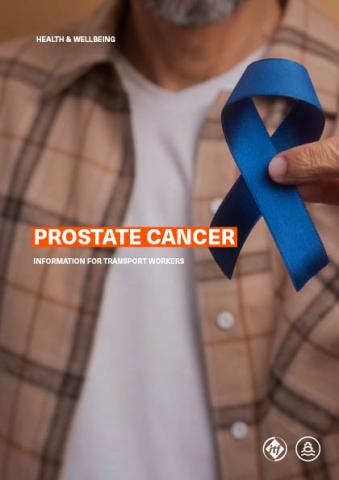Prostate cancer is one of the most common cancers in men and a leading cause of death.
However, with early diagnosis and a range of effective treatment options, most cases can be successfully treated.
Key facts
- It is the fourth most common cancer worldwide and the second most common amongst men.
- According to the World Cancer Research Fund, nearly 1.5 million new prostate cancer cases were reported in 2022.
- Approximately 1 in 8 men will be diagnosed with prostate cancer in their lifetime. However, individual risk varies based on factors such as age, race/ethnicity, and genetics. Prostate cancer is more prevalent in older men, with about 6 in 10 cases occurring in those aged 65 or older, while it is rare in men under 40.
- Most men with early-stage prostate cancer experience no noticeable signs or symptoms.
Health risks
- Prostate cancer typically develops slowly and may not cause symptoms for many years. Signs usually appear only when the prostate grows large enough to create problems.
- Although prostate cancer can be serious, most men diagnosed with the disease do not die from it. In fact, mortality rates have dropped by 50% over the past two decades.
- No specific preventable risk factors for prostate cancer have been clearly identified.
- While numerous factors have been studied, no modifiable lifestyle or environmental factors have been conclusively linked to an increased risk of prostate cancer.
Symptoms
Most men with early-stage prostate cancer do not experience any signs or symptoms, making it essential to be aware of your risk. Potential symptoms of prostate cancer include:
- difficulty starting to urinate or emptying your bladder
- a weak flow when you urinate
- a feeling that your bladder hasn’t emptied properly
- dribbling urine after you finish urinating
- needing to urinate more often than usual, especially at night
- a sudden need to urinate – you may sometimes leak urine before you get to the toilet.
If prostate cancer spreads beyond the prostate or to other parts of the body, it may cause additional symptoms such as back pain, hip or pelvic pain, difficulty achieving or maintaining an erection, and blood in the urine or semen.
Treatment
- Most people with prostate cancer are successfully treated, especially when diagnosed early, thanks to a range of available treatment options.
- The choice of treatment depends on individual circumstances, and in many cases, no immediate treatment is necessary.
- Watchful Waiting and Active Surveillance are approaches used for older men without symptoms or those with other medical conditions, as well as for men whose prostate cancer is detected through screening.
- When treatment is required, the goal is to cure or manage the disease while minimizing its impact on daily life and preserving life expectancy.
- A radical prostatectomy, the surgical removal of the prostate gland, is a potential cure for cancer that has not spread significantly beyond the prostate. However, like any surgery, it carries risks such as urinary incontinence and erectile dysfunction.
- If the cancer has already spread, treatment may focus on prolonging life and managing symptoms rather than achieving a cure.
Prevention
- There is no guaranteed way to prevent prostate cancer, but maintaining a healthy lifestyle as you age or addressing existing health concerns may help lower your risk
- Like all cancers, prostate cancer has certain risk factors that cannot be controlled or avoided.
- Regular screening is essential, as early and frequent testing can help detect prostate cancer at an early stage when it is most treatable.
- While there is no definitive evidence linking diet to prostate cancer prevention, research suggests that certain dietary habits may be beneficial. Reducing fat intake and consuming more fruits and vegetables may contribute to overall prostate health.
- Engaging in regular exercise, maintaining a healthy weight, and avoiding obesity may also help lower the risk.
As medical advancements continue, the ITF will update this information periodically or as needed. For further inquiries or support, please feel free to reach out to us. wellbeing@itf.org.uk

